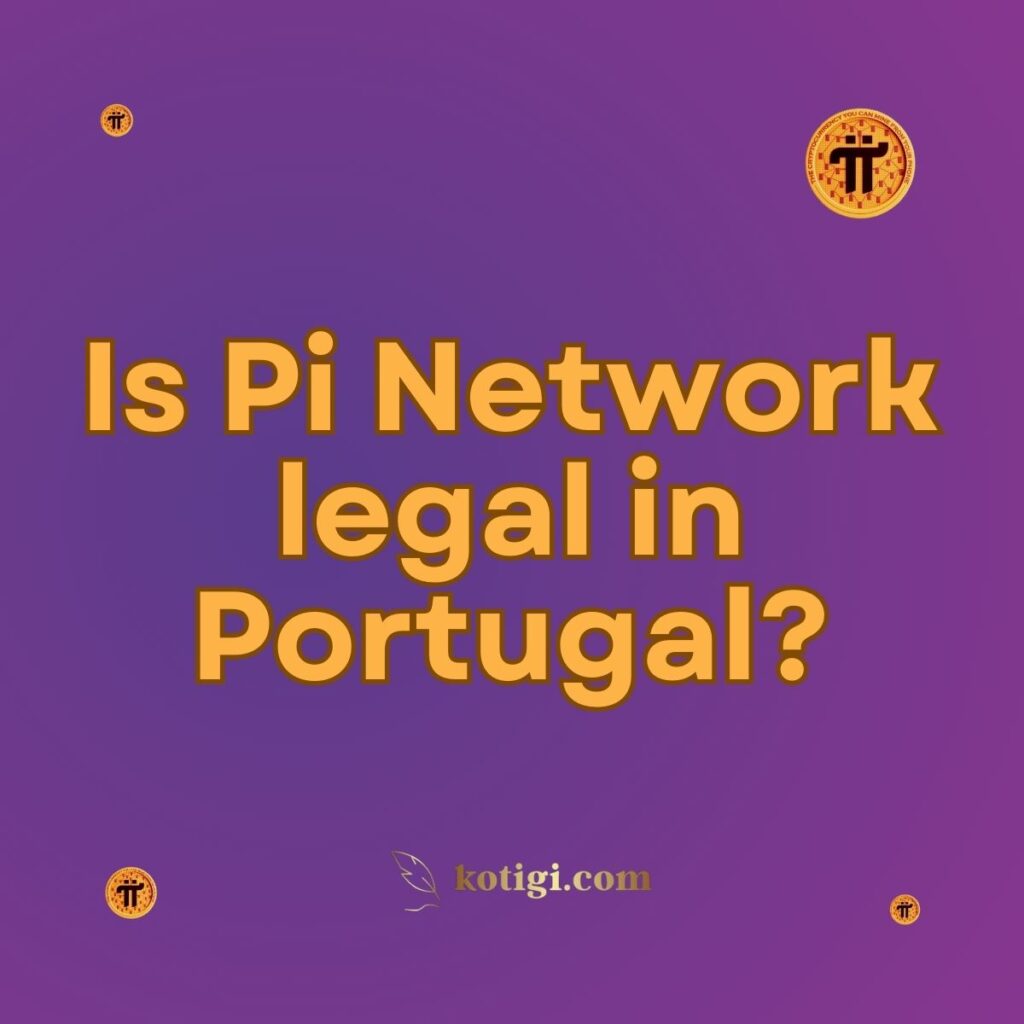
Is Pi Network legal in Portugal?
Yes, Pi Network is legal in Portugal. There are no specific laws banning its use, but Portuguese users must comply with general cryptocurrency regulations, including tax and anti-money laundering (AML) rules.
Introduction
Pi Network has grown into one of the most widely discussed cryptocurrency platforms, allowing users to mine Pi tokens through mobile devices. As more people in Portugal become interested in Pi Network, questions arise about the legal status of the platform and how cryptocurrencies are regulated within the country.
This article will explore whether Pi Network is legal in Portugal, discuss Portugal’s broader stance on cryptocurrencies, and provide an overview of the regulatory framework that applies to Pi Network users.
Cryptocurrency Regulations in Portugal
Overview of Cryptocurrency Laws
Portugal has gained recognition in Europe as a crypto-friendly nation. The Portuguese government has not enacted strict regulations that specifically target the use of cryptocurrencies like Pi. While cryptocurrencies are not considered legal tender, their use is legal, and the government has created a favorable environment for blockchain and cryptocurrency innovation.
Legal Status of Pi Network
As of now, Pi Network is fully legal in Portugal. Portuguese users can mine Pi tokens, participate in the ecosystem, and engage in transactions without fear of legal repercussions. Since cryptocurrencies are not classified as official currency by the Portuguese government, they are treated as digital assets, similar to how they are perceived in many other European nations.
Compliance with Anti-Money Laundering (AML) and Know Your Customer (KYC) Regulations
AML Laws in Portugal
Cryptocurrency platforms, including Pi Network, must comply with Portugal’s anti-money laundering regulations. Although Pi Network does not involve direct financial transactions between users and banks, it still follows the Know Your Customer (KYC) process for identity verification. This process helps ensure that Pi Network is not being used for illicit activities such as money laundering or terrorist financing.
KYC Requirements
Portuguese users of Pi Network must complete the KYC process to verify their identity before being able to use or withdraw Pi tokens. This requirement helps align Pi Network with Portugal’s broader anti-money laundering policies, which require businesses in the financial sector to verify the identities of users to prevent illegal activities.
Taxation of Cryptocurrencies in Portugal
Tax Policy on Cryptocurrency Gains
Portugal is known for its relatively favorable tax treatment of cryptocurrencies. Currently, individuals in Portugal who gain profits from cryptocurrency activities, such as mining or trading, are not subject to personal income tax, provided that the cryptocurrency activities are not part of a professional or business activity.
For Portuguese Pi Network users, this means that any Pi tokens they mine or hold are generally not taxed unless they are used as part of a professional activity or business. However, this tax treatment may change in the future as the government continues to develop its policies on digital assets.
Future Tax Considerations
While Portugal’s tax policies on cryptocurrencies are favorable today, it’s important for users to remain aware of potential changes in tax legislation. As the cryptocurrency market grows and evolves, Portugal may revise its tax rules to account for the increasing volume of digital assets held by its residents.
Risks for Pi Network Users in Portugal
Financial and Regulatory Risks
Although Pi Network is legal and untaxed in many personal use cases, Portuguese users should still be mindful of potential risks. Cryptocurrencies are inherently volatile, and their value can fluctuate widely, meaning that Pi tokens may not retain their value over time. Additionally, the regulatory landscape around cryptocurrencies is still developing, and new laws or regulations could affect Pi Network in Portugal.
Security and Privacy Risks
Portuguese users should take steps to protect their Pi wallets and passphrases. Pi Network operates on blockchain technology, meaning that lost or compromised wallets may result in irreversible loss of funds. Users should ensure that they are interacting only with official Pi Network apps and services, and they should safeguard their private information from phishing attacks and other online threats.
Blockchain and Cryptocurrency Adoption in Portugal
Portugal’s Crypto-Friendly Environment
Portugal is known for embracing blockchain technology and digital innovation. The country is home to various blockchain startups and initiatives, and the government has been supportive of projects in this field. Pi Network fits well within Portugal’s progressive approach to blockchain, as it encourages individuals to participate in the digital economy by mining Pi tokens on their phones.
Crypto Education and Development
In addition to favorable policies, Portugal has seen a rise in educational programs and initiatives related to blockchain and cryptocurrency. Universities and private institutions in Portugal are offering blockchain courses, which could further boost public interest in cryptocurrencies like Pi Network. This educational push complements the country’s existing supportive stance on digital currencies.
Conclusion
Pi Network is legal in Portugal, with no specific regulations prohibiting its use. The platform falls under the broader legal framework for cryptocurrencies, which is relatively lenient compared to other European countries. Portuguese users can mine Pi tokens and participate in the network without significant regulatory concerns, although they should be aware of potential future changes in the tax or legal landscape.
Portugal’s crypto-friendly environment makes it an attractive place for cryptocurrency enthusiasts. However, users must remain vigilant about compliance with anti-money laundering regulations and protect their digital assets from security risks. As Pi Network continues to grow, Portuguese users will benefit from the country’s open and innovative approach to blockchain technology.
Key Takeaways
- Legal Status: Pi Network is legal in Portugal, with no specific laws banning its use or transactions.
- AML and KYC Compliance: Pi Network must comply with Portugal’s anti-money laundering regulations, which include identity verification (KYC).
- Tax Policy: Cryptocurrency profits are generally not taxed for personal use in Portugal, but users should stay informed about potential future changes in tax laws.
- Crypto-Friendly Nation: Portugal is known for its favorable stance on cryptocurrencies and blockchain technology, offering a supportive environment for Pi Network users.
- Security Risks: Portuguese Pi Network users should ensure they follow best practices for securing their wallets and personal information.




